A hundred thousand views is a lot for any sector of Daily Maverick and for my modest little corner of it to produce those numbers, well, it was a feel-good moment when our Marmite stories became among the top reads across all platforms.
Considering that 5,000 clicks is a good number, we are chuffed to find that all of our Top 10 reads of 2020 amassed more than 30,000 reads apiece. Also important is the measure of how long, on average, people are staying on a page. The relevant stories were all read for an average of 4 to 8 minutes, which tells us that people aren’t just clicking, they’re reading the entire story. Here, then, are the Top 10 stories you read the most in our neck of the DM woods:
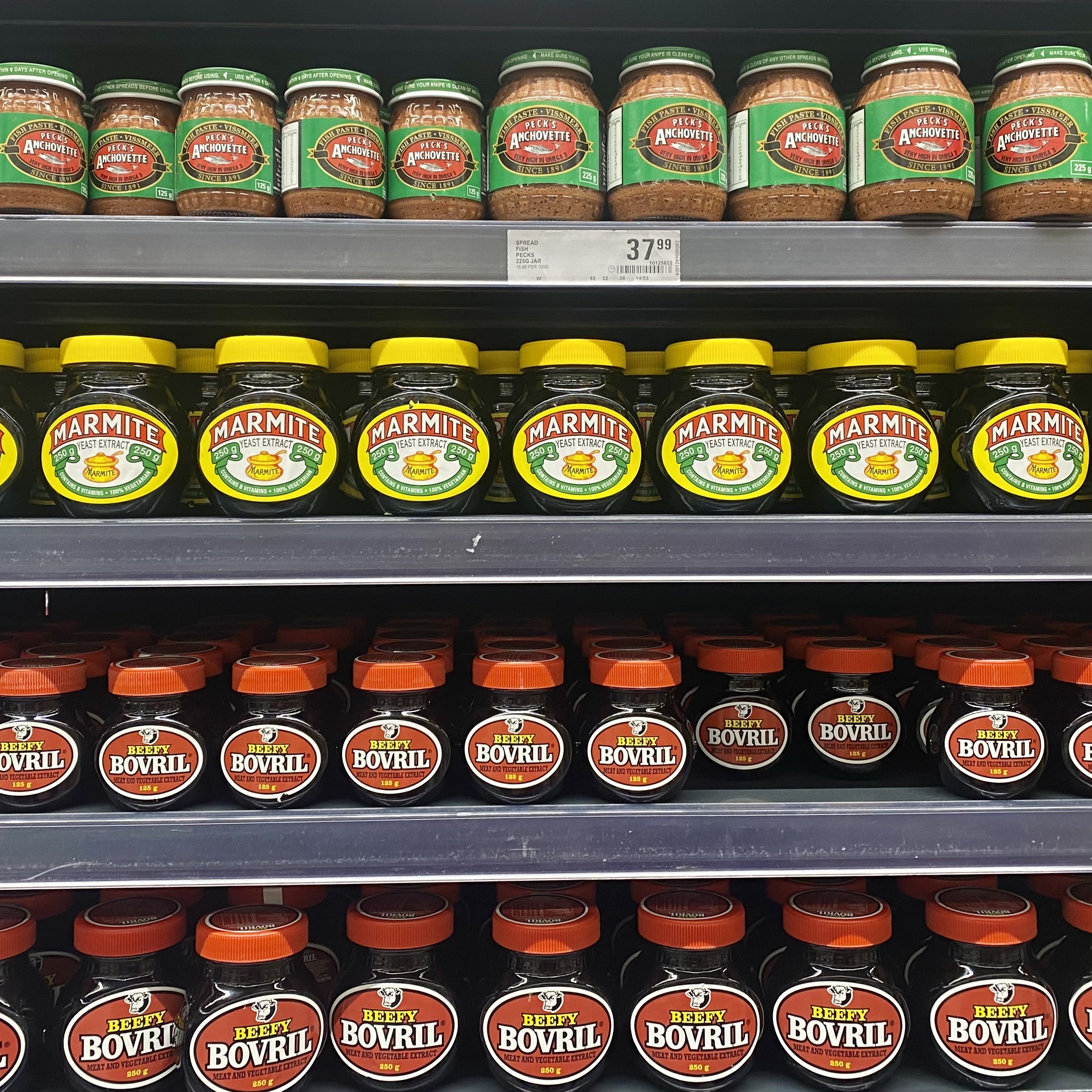 A welcome sight for Marmite lovers; the gap between fish paste and Bovril had previously been sad and empty. (Photo: Bianca Coleman)
A welcome sight for Marmite lovers; the gap between fish paste and Bovril had previously been sad and empty. (Photo: Bianca Coleman)
Back in January, Bianca Coleman’s story amassed an extremely healthy 104,108 page views and was the top-read story in Daily Maverick for that week. We subtitled her piece The War On Spreads, as we had labelled earlier stories about the dearth of Marmite. Bianca’s piece had been preceded by a superb write by Jeremy Maggs about the massive gap in his life left by the void that Marmite had once filled.
Bianca wrote: Peck’s Anchovette and Redro fish paste are the latest casualties of product discontinuations or shortages, following the great Marmite debacle of 2021 and the earlier disappearance of Nestlé’s Chocolate Log. As a consolation, TGIFood brings you a recipe for making your own fish paste. But not your own Marmite.
That recipe was by Georgia East, and it went viral on social media along with Bianca’s story.
That story is, not surprisingly, the top story of the TGIFood year, but Bianca took second spot too with her sequel…
2. Missing Marmite: The Soda Ash Edition
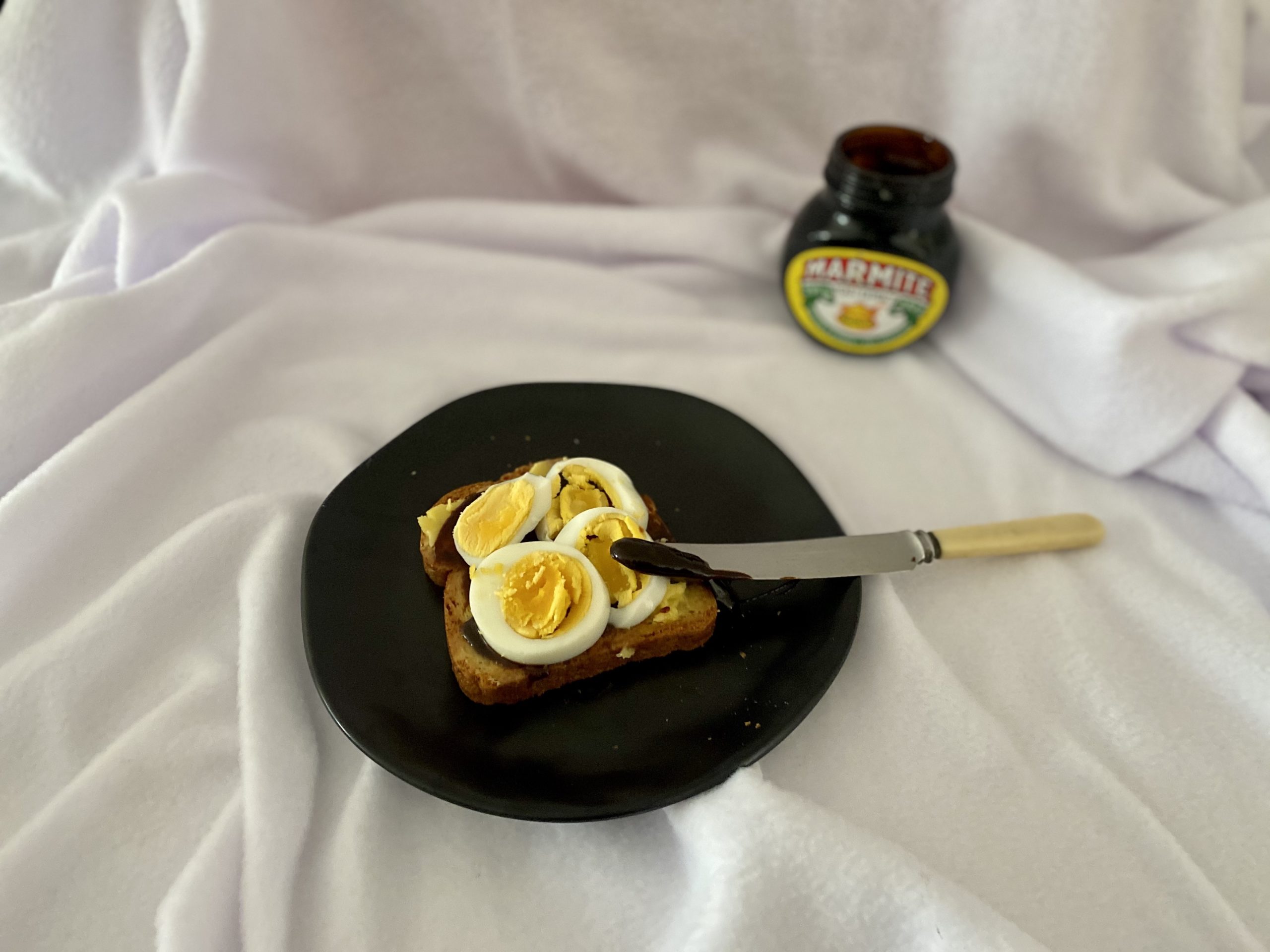 Bianca will take a thin smear of Marmite with sliced hard boiled eggs for breakfast. (Photo: Bianca Coleman)
Bianca will take a thin smear of Marmite with sliced hard boiled eggs for breakfast. (Photo: Bianca Coleman)
This piece, published in March, had 70,293 views, which gives the two stories a combined 174,401 reads.
Bianca reported that during previous lockdown levels, when alcohol was banned, the essential Marmite ingredient – brewer’s yeast, a by-product of beer manufacturing – was unavailable, causing a shortage of the spread. Sourcing enough to meet the demand remains a challenge, exacerbated by the shortage of another raw material: soda ash.
3. Keep calm and eat Wagyu beef as the SA industry breaks new ground
 A Black Wagyu herd enjoying brunch at Karoowaters farm near Cradock. (Photo: Tony Jackman)
A Black Wagyu herd enjoying brunch at Karoowaters farm near Cradock. (Photo: Tony Jackman)
In 3rd place, with 55,116 page views, was my story from February about Wagyu beef in which I wrote: Success hasn’t come easy for the South African Wagyu beef industry, a notoriously difficult arena to operate in. Ever since 1997, when Japan designated its Wagyu breed of beautifully marbled, tender beef a national treasure and banned its export (if a Japanese farmer exports it, there are dire consequences involving jail time), beef farmers elsewhere, notably Australia and the US, have scrambled to climb into the market.
4. South Africa’s hardbody chickens – they’re tough but tasty
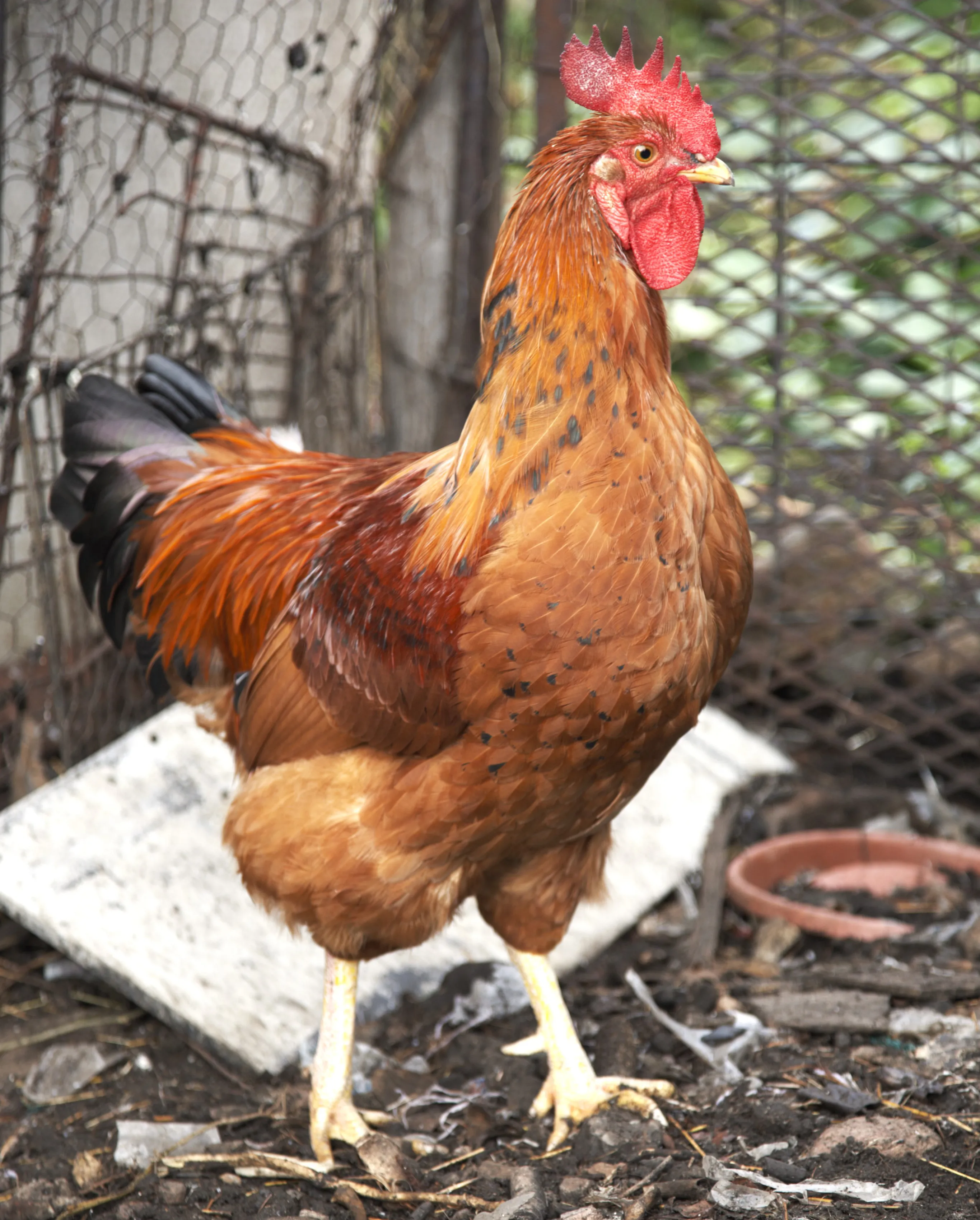 An umleqwa chicken, Libode district, Eastern Cape. (Photo: Richard Goode)
An umleqwa chicken, Libode district, Eastern Cape. (Photo: Richard Goode)
My colleague Anna Trapido always delivers a good story, always thorough in content and depth, and always on the money. This piece amassed 49,258 reads and was the July edition of her regular Scoff column for TGIFood.
Anna wrote: Not all hardbodies are created equal. Hardbody chicken is a southern African food phrase that almost all of us intuitively understand but many would struggle to precisely define. Part of the problem is that, while we all think we know what we mean when we say “hardbody”, it seems that we all mean something slightly different…
5. Adrift in a sea-washed Karoo of succulent and Sperrgebiet
 The Orange River alongside the tarred road from Oranjemund to Aus. Namibia and the Richtersveld, on the left, and the Northern Cape towards Namaqualand, right. (Photo: Tony Jackman)
The Orange River alongside the tarred road from Oranjemund to Aus. Namibia and the Richtersveld, on the left, and the Northern Cape towards Namaqualand, right. (Photo: Tony Jackman)
My Karoo Dreaming column published in February was read 44,732 times. In this particular karoo reverie, I explored the surprising realisation that I had been born in the Karoo… but a lesser known part of it.
I wrote: We think of the Karoo as koppie-punctuated Platteland and endless scrubby veld. But there’s a vast swathe of it that hugs the coastline. It even stretches well into the Sperrgebiet and the arid strangeness of southern Namibia. The Karoo I called home. My birthright Karoo.
6. The ghostly whispers in the corridors of Karoo hotels
 Near the Brinsmead piano in a corridor at the Royal Hotel in Willowmore hangs this painting of the inn. (Photo: Tony Jackman)
Near the Brinsmead piano in a corridor at the Royal Hotel in Willowmore hangs this painting of the inn. (Photo: Tony Jackman)
This was another Karoo Dreaming column, and was read 43,933 times. The old hotels of the Karoo have long fascinated me and, during a family holiday, I tracked some of these throughout our meanderings, including a couple of Royal Hotels and the secrets and ghosts that they hold.
I wrote, in a soft, ghostly voice:
Pianos tell stories. In the cool breeze of the long corridor of the Royal Hotel in Willowmore, you seem to hear the ghostly tinkle as the fingers of people long dead danced along the keyboard while others stood and watched, ears rapt. The piano that stands solitary sentinel along a wall of the passage is a Brinsmead. It guards a green wall in the lonely passage lined with doors in and out of which spirits may roam. Maybe you’ve landed in a Coen Brothers movie, or is Kubrick here and slasher Jack Torrance is about to stick his head through a door with a cackling “Heeeere’s Johnny!”
7. She’s not just a name on a spice jar, you know
 Ina Paarman in her garden in Constantia. (Photo: Micky Hoyle)
Ina Paarman in her garden in Constantia. (Photo: Micky Hoyle)
Bianca Coleman interviewed Ina Paarman, and this story just kept being read, forwarded and shared on social media. A beautiful example of social networking giving a story legs. To date, it has amassed 43,400 reads but I’m sure that number will continue to grow. Who doesn’t love Tannie Ina…
We headlined the story “She’s not just a name on a spice jar, you know”, in which Bianca wrote: There are people who think Ina Paarman is a name on a spice jar but she’s a very real human. From cooking lessons in a converted garage in the 80s to a family business making nearly 200 products exported to more than 30 countries, Ina Paarman is a living legend and an inspiration to home cooks all over South Africa.
8. Black Beauty: The story behind Marmite
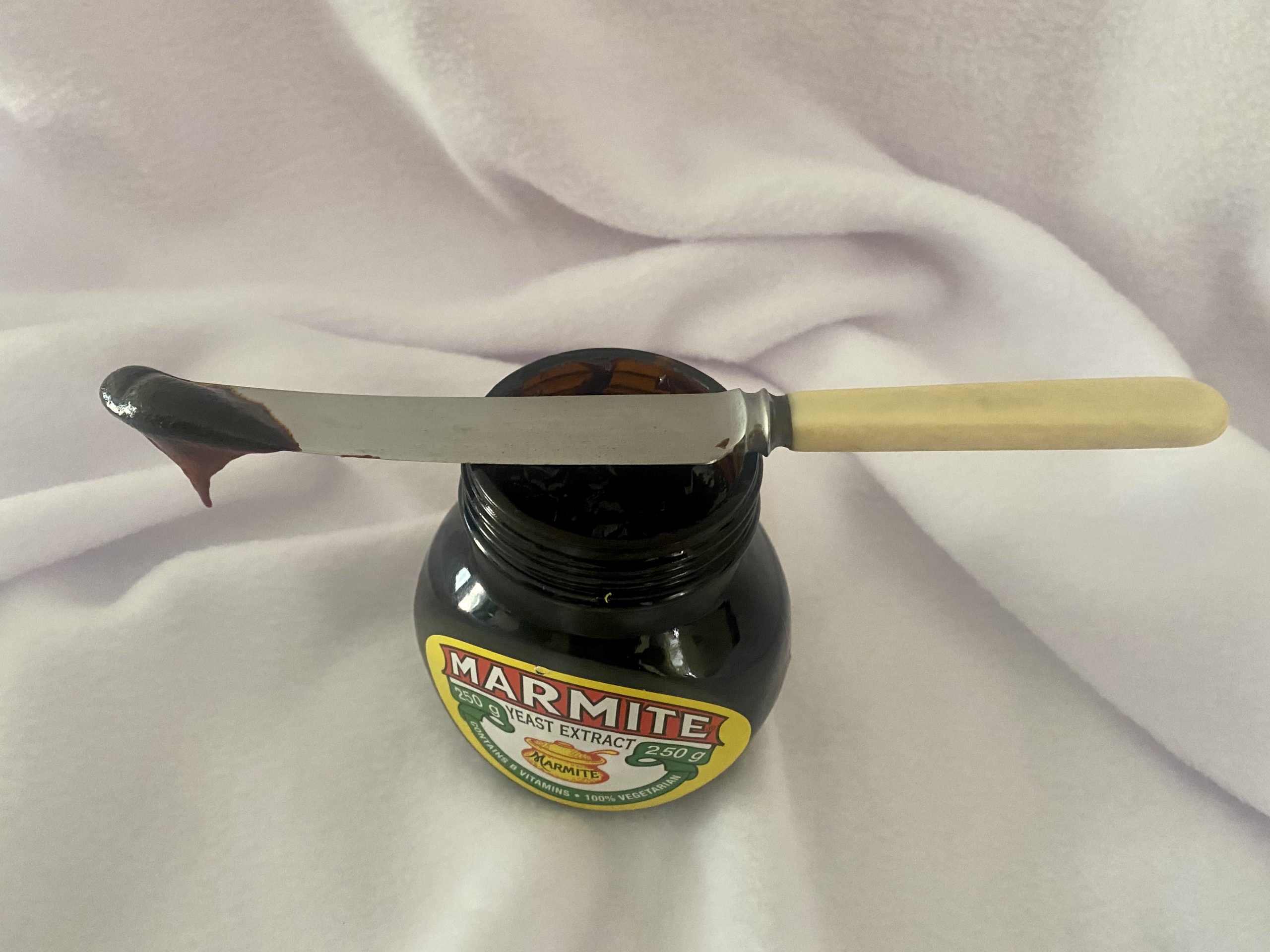 Now you see it, now you don't. (Photo: Bianca Coleman)
Now you see it, now you don't. (Photo: Bianca Coleman)
Marmite again, this one garnering 40,471 reads, bringing the total readership of our 2022 Marmite stories to 214,872. This piece was my own take on it, in which I delved into the history of the Black Beauty of spreads. And there’s a lot of history there.
I wrote: The tar-black paste that we smear on toast has its roots, not in vegetables, but in beef. Even though there’s none in it. It’s no coincidence that Marmite tastes beefy, even though it is made entirely of vegetable matter. It owes its invention to a German scientist who formulated a way to manufacture beef extracts, which led to the development of the Oxo brand of beef court bouillon cube. That’s right: Justus Freiherr von Liebig, the principal founder of organic chemistry, invented the beef stock cube, but he also went on to play a significant role in the creation of a substance made with no meat in it whatsoever yet which has an undeniable “meaty” character and flavour: Marmite.
9. The Locust Migrations: Riders on the sandstorm, wonder in the sky
 The view from inside the car is only a small window onto the scale of the plague of locusts from one horizon to the west to the other, and at least 60 km into the distance towards the Sneeuberg mountains. (Photo: Tony Jackman)
The view from inside the car is only a small window onto the scale of the plague of locusts from one horizon to the west to the other, and at least 60 km into the distance towards the Sneeuberg mountains. (Photo: Tony Jackman)
Holidays bring us fun, family and a reprise from the stresses of life. Until you drive through a plague of locusts. My Karoo Dreaming column about this extraordinary experience attracted 32,217 page views.
I wrote: It came from the foothills of the Sneeuberg mountains that curve from Aberdeen to Graaff-Reinet. A mighty wind must have careered down the berg and hit the earth hard to churn up such a maelstrom of sand and twigs, now charging towards us across the vastness of the plains of Camdeboo. When I’d first noticed the long, low cloud of dust that seemed to hug the base of the mountains from one horizon in the far west to the other towards Graaff-Reinet in the east, I’d said aloud, “Looks like we’re in for one almighty sandstorm, look at that…”
10. Zinc Roof Reveries: Flat tyres, bad whiskey and the ladies of the canyons
 The Fish River Canyon at sunrise. The canyon is in the /Ai /Ais-Richtersveld Transfrontier Park in the Succulent Karoo that reaches into southern Namibia. (Photo: chrisstenger on Pixabay)
The Fish River Canyon at sunrise. The canyon is in the /Ai /Ais-Richtersveld Transfrontier Park in the Succulent Karoo that reaches into southern Namibia. (Photo: chrisstenger on Pixabay)
The fourth of my Karoo Dreaming columns to feature in the Top 10 (thank you) drew 31,951 reads. This was one of my reveries in which I imagined that Joni Mictchell and her Ladies of the Canyon had been adrift in the Karoo.
I wrote: When the wind was in from Africa and the night was a starry dome, was she feeling the breath of the faraway Karoo, sensing something in the air that was strangely familiar. A lady of the canyon, imagined on the veld in a world of hope turned to sorrow. Somewhere in the Karoo, the cassette player in the car is playing Joni Mitchell on a loop.
CODA
A special mention for the 11th story on the list, and this pleases me greatly because mutton, as compared with lamb, is terribly underrated and overlooked. At least 28,490 readers seem to agree with me. In The case for mutton I wrote: Meat, fat, veld, flavour – that’s mutton, in four words. Lamb? Let it live a little first. It’s the question that has sheep farmers shaking their heads with wry smiles passing like shadows across their weathered faces: Why do the townies all prefer lamb over mutton? Yet, I receive frequent emails from readers wanting to know why they can’t get mutton in their local supermarket meat fridges and butcheries. That, I’m afraid, comes down to nothing more than supply and demand: city folk almost invariably choose lamb, ask for lamb, expect lamb. Until you change that mindset, and start asking in greater numbers for mutton, it is not going to change.
If you do agree with me, and want to cook more mutton in 2023, please pop into your butchery for a nice chat about it. Read the story here. DM/TGIFood




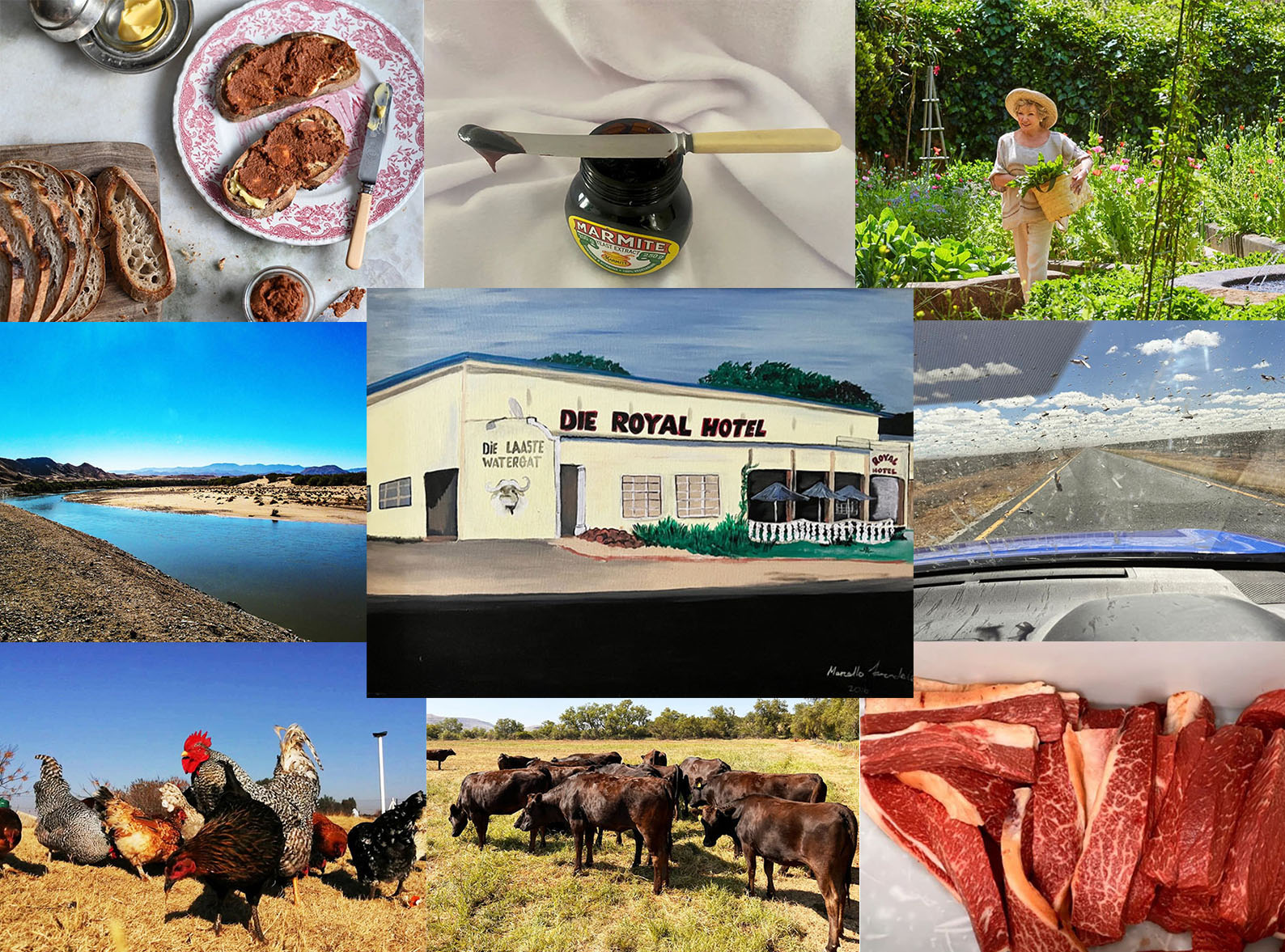 The Fish River Canyon at sunrise. The canyon is in the /Ai /Ais-Richtersveld Transfrontier Park in the Succulent Karoo that reaches into southern Namibia. (Photo: chrisstenger on Pixabay)
The Fish River Canyon at sunrise. The canyon is in the /Ai /Ais-Richtersveld Transfrontier Park in the Succulent Karoo that reaches into southern Namibia. (Photo: chrisstenger on Pixabay) 